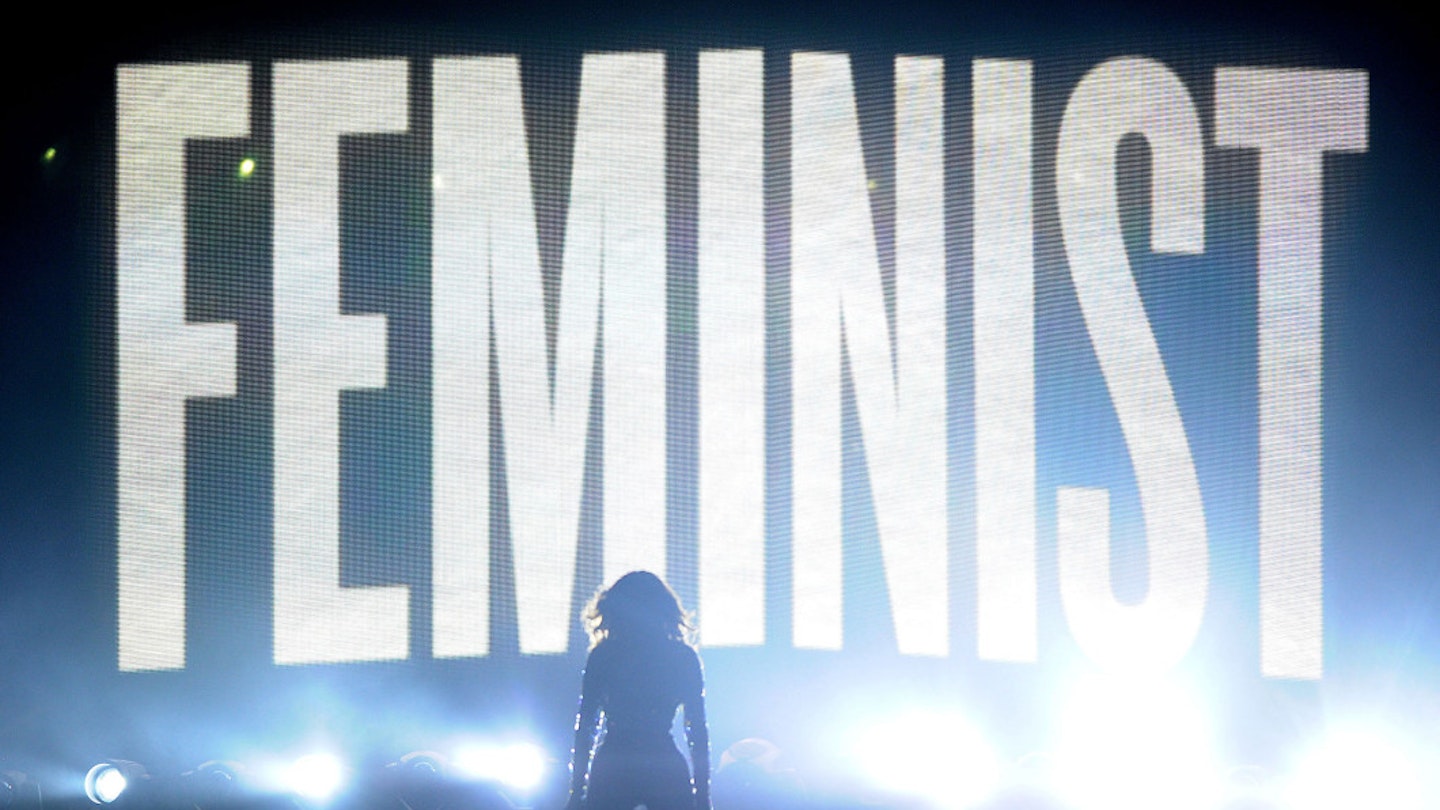Last week, I had a bit of a ‘do’ on the tube. It wasn’t a fight or an altercation - no one was hurt, physically or otherwise, it started kindly and ended so - but the short exchange stayed with me. Here is what happened, in a nutshell:
I boarded a train. A man, who appeared to be in his 40s, asked me if I would like to take his seat, instead of standing. I thanked him, but politely turned the offer down. Then he turned to his friend and, half under his breath, half purposefully loud enough so I could hear, said, ‘Not a feminist then - I’m not getting attacked!’
HAHAHAH- no.
Of course I took the bait. I asked him to repeat himself, then explained, in a friendly manner, that to be a feminist does equate to being violent, vitriolic or otherwise. And also that people giving other people seats on the tube is not high on the feminist agenda, but merely good manners that are exchangeable between the sexes. He said he understood, but he didn’t like the term feminism, or women who call themselves feminists. But he liked me, he said. (PHEW.)
For him, and for so many other men and women I’ve met, it’s the feminist ‘label’ that is prickly - or divisive, to borrow a term. But do you have to call yourself a feminist to *be *a feminist?
Shailene Woodley is the latest celebrity to reject the label. This week, the 23-year-old, on her promotional tour for *Insurgent, *she said, ‘The reason why I don't like to say that I am a feminist or I am not a feminist is because to me, it's still a label. I do not want to be defined by one thing. Why do we have to have that label to divide us? We should all be able to embrace one another regardless of our belief system and regardless of the labels that we have put upon ourselves.’
Previously she’s said that she’s not a feminist because ‘…I love men. And I think the idea of 'raise women to power, take the men away from the power' is never going to work out because you need balance.’
Which is, of course, entirely correct. We do need balance - equality is the aim. But it just so happens that, in many areas of life, in many, many societies, it’s women who are nowhere near being afforded that parity. (Also where are these feminists who are desperate to take ALL OF THE MEN DOWN, RIGHT NOW, please? I have never known one, nor known anyone who has ever known one.)
The short answer to the title question of this post is no - you can stand for everything feminism defines, but not call yourself a feminist. Except, it doesn’t seem to help.
In the last few weeks, I’ve been told that feminism is divisive by a number of women who stand up for equality. They were mostly referring to Twitter spats (annoying), hierarchical feminism whereby one feminist deems another unworthy (annoying and demeaning). But surely, ironically, the most divisive action that you can take as an advocate of women’s rights is shunning the term that encapsulates all of our ideas, knowledge and strength, which makes them one unified force for change?
Feminism is our massive umbrella shading us from the bullshit that sometimes comes hand in hand with publically declaring your alignment to any movement (hi, again, Twitter), and a device we can use to push our way through obstacles which will naturally arise. One big umbrella, named Feminism, with hundreds of thousands of men and women standing behind it, is stronger than lots of little umbrellas all going in the same direction but taking different routes. There might be squabbles along the way, but obstacles are harder to tackle with a smaller team.
The label, rather than demeaning and dividing, diverting us away from the ultimate aim, gives us a collective strength. And we’ve been working up that strength for so many years before now, it would be a real shame to waste it and ‘rebrand’. We can’t afford to.
So let's not, if possible, but instead spread the word. Feminism, with all its perceived flaws, is not just the theory, but the act of coming together and saying as one big, loud, shouty voice that every woman is equal to men and deserves to be treated as such. The point is that smaller voices, under lesser known titles or fancier pronouns, might well be right but there's a danger they might not be heard. And that's a risk we can't afford to take.
